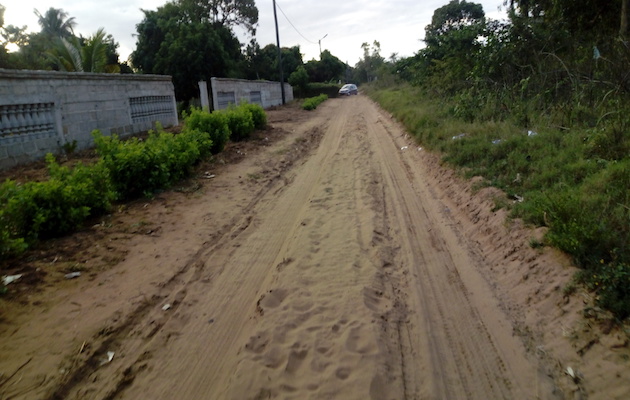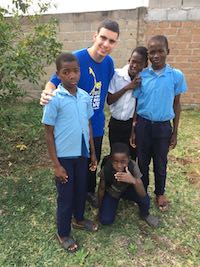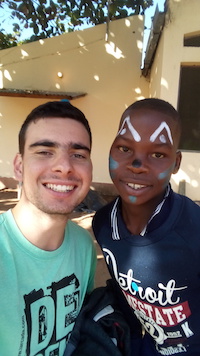Roads in the sand
A Spanish biomedical engineering student is designing a special wheelchair, adapted to the sandy soil of Mozambique, to meet the needs of the population in the rural areas.
Protestante Digital · BARCELONA · 27 AUGUST 2018 · 15:10 CET

The final dissetation of the Spanish University student Daniel Collado is a very unique project.
It is special because it combines the contact with an unknown culture, such as the Mozambican one, and the development of a tool that meets the needs of a part of the population: a wheelchair adapted to the native terrain and rural areas of the country.
“Mozambique is a country where the soil, in a high percentage, is sandy. This makes it difficult for people who use wheelchairs to move, since they get stuck preventing their mobility”, he explains in one of the points of his dissertation.
Collado is a biomedical engineering student in the University of Barcelona, and he collaborates with the Mefi-Boset group, which works with people with special needs.
He has just returned from Mozambique, where he has been for about a month in the Macia-Sekeleka Integrated Social Center, knowing the situation and the people on the ground, while being with the Spanish Baptist missionary Sara Marcos, who also works with children with cerebral palsy and mobility difficulties.

The trip is part of one of the stages of his dissertation project which, as planned, will be finished by June 2019.
“The trip has confirmed me both the needs and what the project can contribute to the lives of these people, to help them move on a terrain as sandy as that of Mozambique. The fact of knowing many concrete cases and their daily reality has reaffirmed me in the reason of the projectv, Collado says.
In addition, “as a result of presenting it to the university and discussing it with the project director, the work is currently being presented to different entities to find economic support. With or without funding, the idea is to move forward”.
MOZAMBIQUE, A HARD PLACE FOR THOSE WITH MOBILITY DIFFICULTIES
According to Collado, there are 500 million people in the world with some dysfunction. 80% have access to elements of adaptability that aim to improve their quality of life, while the remaining 20% do not have the opportunities to meet those needs.
This is the case of Mozambique, where rural areas are not adapted to reduced mobility. “The sandy soil affects a large part of the land and, above all, in rural areas where two thirds of the country's population is located”, the student says.
In his project, Collado indicates how the lack of access to equipment and adapted roads causes the search for alternatives that do not respond to the needs of people.

THE CHAIR
The adapted chair project includes various equipment prototypes ranging from 1,400 to 15,000 euros. The idea of Collado is to use the native materials to make the chair.
“There are several materials very common in Mozambique, that could be used in the project, such as wood, bituminous coal, natural gas, iron, mineral tantalite and other minerals”, he says.
The project would not only revolutionize the lives of people with reduced mobility in the country, but it would also be an economic asset, if it end up being manufactured with what the land of Mozambique gives.
“The mobility mechanisms available to them are wheelchairs that can only be used in very specific parts of the land, where the volume of sand allows them to move with some ease without getting stuck in the ground”, concludes Collado, who expects to return soon to Mozambique soon, with his work more developed.
Published in: Evangelical Focus - life & tech - Roads in the sand
